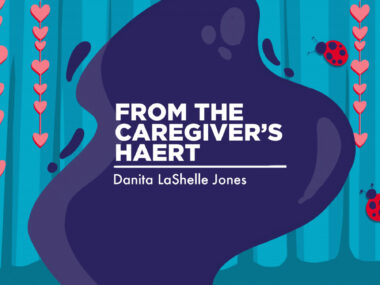Even years in, there are some HAE skills we have yet to master
Sometimes, we just aren't there yet — and that's OK
Written by |

“We don’t really care if they can’t read,” the post on Threads read. “Just make sure they have basic self-help skills.”
The sentiment was from a kindergarten teacher trying to calm a worried parent because the parent was concerned their kid hadn’t quite mastered their letters. Soon, other kindergarten and pre-K teachers were replying to the post, referencing humorous anecdotes about what some 5-year-old students didn’t know: their real names, their parents’ names, their home addresses, how to fasten buttons, how to use the restroom on their own, or even how to tie their own shoes.
I knew all too well what they were talking about.
Before any of our children reached toddler age, my husband and I shared a unique perspective on our children’s independence. We taught songs, rhymes, and games that helped them learn self-help skills, enabling them to articulate necessary information or execute simple tasks.
By the time they started school, and the kindergarten orientation had a sheet titled “Can My Child …” (a relatively robust list of skills our 5- or 6-year-olds needed to know before the first day of school), they were ready.
We did a more advanced preparation for our oldest before he left for college.
Whether it’s kindergarten or college, the sentiment is the same: We want our children to be able to perform basic life skills even when we’re not around.
Yet, there’s one thing I’m still very worried about when it comes to one of our children.
The skill my daughter has yet to master
When our oldest daughter, whom we lovingly call Ladybug, was diagnosed with hereditary angioedema (HAE), I quietly approached the caregiving journey with the idea that she wouldn’t live at home forever.
It started with nontangible acts, such as knowing how to “movie pitch” her disease to anyone who asked about it. Soon, I followed up with her ability to give an in-depth explanation to a medical professional who may be hearing about it for the first time.
As she grew older, she learned how to advocate for her preferences in the emergency room and on the hospital floor, how to order her own food if she had to stay overnight, and how to list all her medications.
After a while, we graduated to her administering her own preventive medications, something we loudly celebrated because of her complicated history with needles.
However, recently, when she had the opportunity to travel with a large youth group to a nationwide faith-based event, I booked a hotel room two floors below hers just in case. Why? Because she can’t administer her emergency medication, nor am I trying to make her. Giving yourself an intravenous infusion is a big deal.
Recently, someone asked me what we’ll do when Ladybug goes to college. The answer: I have no idea. Honestly, the idea brings me anxiety. I can hope that, by then, HAE therapies will have made significant advancements, or possibly a cure will be discovered.
But until then, I can’t help but feel like a kindergarten parent at an orientation meeting, staring at a list that includes a skill my kid has yet to master.
The good news is that she’s only a sophomore in high school, and we have time. The other good news is that I don’t have to have all the answers today.
And maybe that’s a lesson for all kindergarten parents and caregivers alike. Sometimes it’s OK if we aren’t there yet.
Note: Angioedema News is strictly a news and information website about the disease. It does not provide medical advice, diagnosis, or treatment. This content is not intended to be a substitute for professional medical advice, diagnosis, or treatment. Always seek the advice of your physician or other qualified health provider with any questions you may have regarding a medical condition. Never disregard professional medical advice or delay in seeking it because of something you have read on this website. The opinions expressed in this column are not those of Angioedema News or its parent company, Bionews, and are intended to spark discussion about issues pertaining to angioedema.



Leave a comment
Fill in the required fields to post. Your email address will not be published.